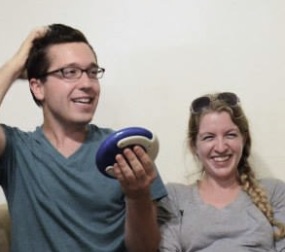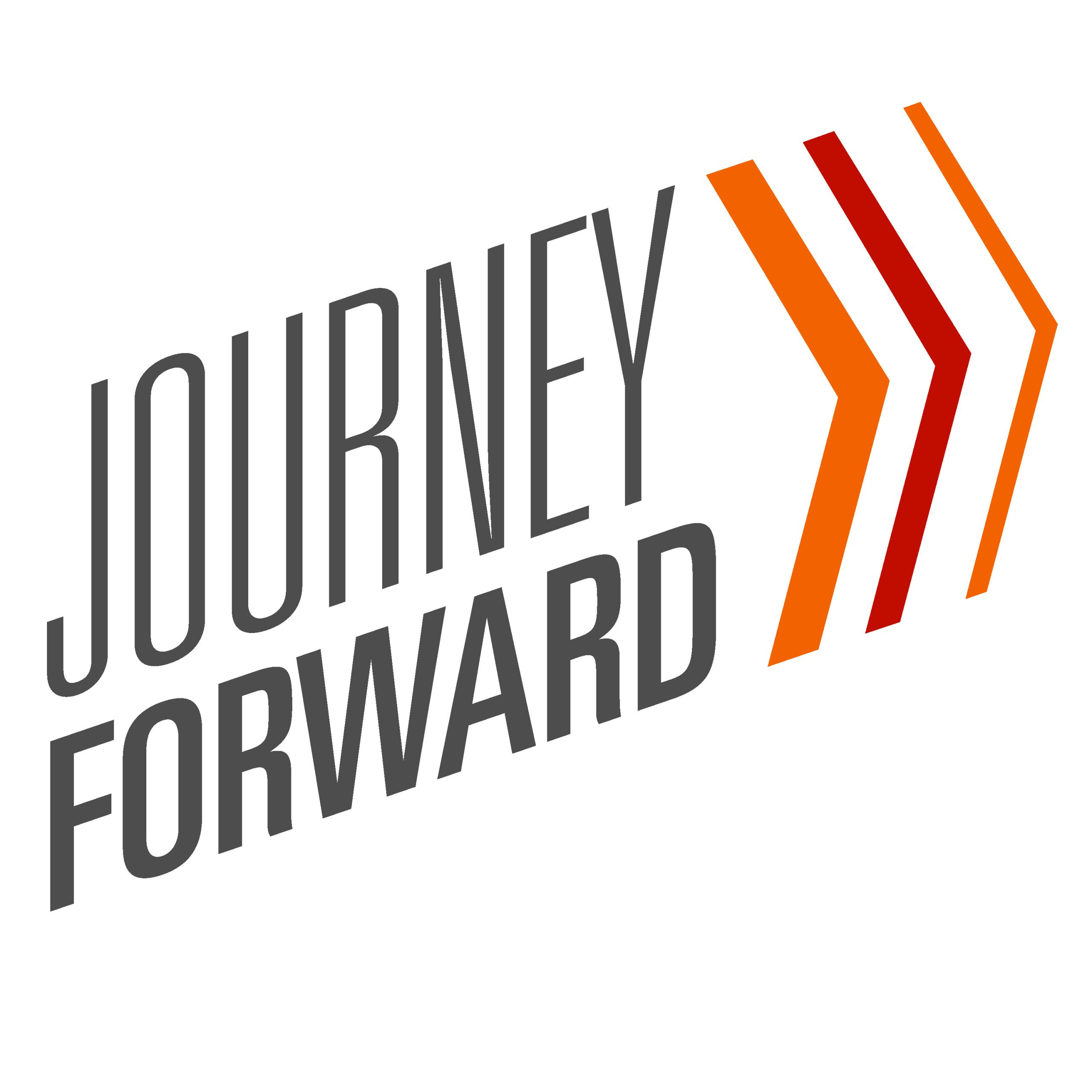Over the next few months we’ve invited folks from across Mennonite Church USA to reflect on our Journey Forward and consider how they’ve seen Renewed Commitments at work in their lives, their congregation or community. If you’d like to contribute to this series by highlighting stories that bring our shared values to life, email JenniferC@MennoniteUSA.org.
Meg Duff and Jonathan Hershberger attend First Mennonite Church of San Francisco. They enjoy game nights with good friends.
Earlier this year, MC USA leaders met with young adults from First Mennonite Church of San Francisco (FMCSF) to discuss the Journey Forward, MC USA’s new strategic initiative.
Two of us, Meg and Jonathan, debriefed our reactions during a long drive from the Pacific Ocean to California’s Central Valley, Meg’s childhood home and Jonathan’s current address.
We found our differences instructive. We were reminded that welcoming difference as a teacher is the best way to journey together. Here is a summary of that conversation.
Jonathan:
In the Renewed Commitments, I appreciate the line about diversity revealing God’s beauty. And, it’s hard for me to believe this sentiment is genuine when I’m excluded from membership and employment at most Mennonite institutions.
My experience growing up and coming out as gay in Mennonite communities was painful — including painful reactions and rejections by spiritual mentors in my life. I arrived at FMCSF with baggage and being HIGHLY skeptical of Mennonites. What I found, for the first time in my life, was a sense of being normal. I attribute much of the healing I’ve done in my young adult years, along with any willingness to engage with the MC USA, to FMCSF
While many of the concepts in the Renewed Commitments look great on paper, they feel hollow. I wonder where LGBTQ Mennonites fit into this. Am I, a gay man, included in the belovedness of all creation? Is MC USA willing to tell the truth about the discrimination that is happening within their institutions?
Meg:
My initial reaction to the Journey Forward was more positive. I was probably willing to extend the benefit of the doubt to the process because I’ve had the opportunity to feel like an insider in church politics.
My mom pastors a church that left a mainline denomination to join an evangelical one 10 years ago. Both then and in different ways as a PSMC board member, I’ve seen how hard it is to balance the needs of diverse congregations and how easy it can be to hurt each other.
Jonathan, your unwillingness to be comfortable with easy answers reminded me that we all come to reconciliation work with different strengths, traumas, and strategies. Those strategies include the conflict avoidance so common in both Mennonite culture and dominant culture.
Even though we pride ourselves on conflict resolution, we often just want to smooth over conflict quickly. I see that in myself: I realized that I wanted our Journey Forward conversation with MC USA leadership to end with superficial agreement instead of honest, messy questions.
Our world desperately needs peacemakers, but peace churches forfeit our right to that reputation if we can’t reconcile with each other. If we are going to journey anywhere together, we need to practice being uncomfortable.
Jonathan:
I see the Journey Forward vision at work in our congregation’s ability to hold space for tension in our relationships with each other and the broader church.
We name these tensions when we become aware of them. A few examples include our commitment to standing at variance with the Mennonite church in our acceptance of LGBTQ people, through discussions on hymn texts that we find troubling (followed by singing those same hymns!), and in a weekly bulletin announcement naming the tension between traditional, Christian texts and modern, gender-inclusive language.
Meg:
FMCSF lets us experience how some “variance” makes community richer, rather than impossible. But it also gives us space to be ourselves.
Growing up as a pastor’s kid, I thought I should be a role model. When I felt my questions about theology would be threatening to my peers or mentors, I just stopped asking. But at FMCSF, just about everyone has wrestled with their faith or questioned their relationship to the church in some way. For me, the collective willingness to sit with uncomfortable questions is incredibly comforting.
Those spaces where we feel fully accepted, whether in our congregations or affinity groups like Evana Network, Hope for the Future or the Brethren Mennonite Council for LGBT Interests, recharge us so we can also keep our hearts open to people who see the world differently.
MC USA can’t be easily untangled from feeling, or being cast out by our faith communities. It also can’t be easily untangled from our shared histories of colonialism and ongoing racism, sexism and heterosexism. There is lots of diversity within MC USA and it’s not an even playing field.
If we are going to journey forward together we have to acknowledge that we are coming to dialogue with different starting points.
A critical piece of the Journey Forward vision must be ensuring that those who have been excluded are given seats at the table. I’m interested in the actionable steps that MC USA will take to encourage congregations and conferences to live into these commitments.
Meg:
Whatever the steps end up being, I’m reminded of the Israelites’ “Journey Forward”: they ended up wandering in the desert for about 40 years longer than they expected. These things take time. I hope MC USA will prioritize relationships over outcomes and honest discomfort over easy resolution.
MC USA can’t force us all to the table. But meaningful reconciliation will not happen if each congregation just talks amongst itself. We have to know our neighbors to love our neighbors.
Our shared hope is not that MC USA or conference leaders will get us all on the same path. Instead, we hope our leaders will facilitate relationships between churches and help us build the skills we need to have honest conversations in love.
________________________________________________________________
All congregations are invited to use Journey Forward’s “Pathways” study guide. Find it and all Journey Forward updates here.
Your financial support of MC USA helps us equip leaders and tell stories of Anabaptist faith in action across the church. Donate to MC USA here.



